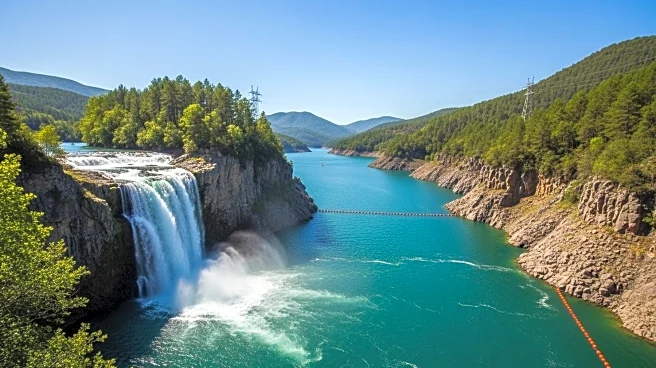What is the story about?
What's Happening?
Mozambique has secured World Bank backing for the $6 billion Mphanda Nkuwa hydroelectric plant, the largest project of its kind in southern Africa in 50 years. The plant is expected to generate 1,500 megawatts by 2031, addressing a regional power deficit. The project is developed by TotalEnergies, Électricité de France, and Mozambique's Hidroeléctrica de Cahora Bassa. The World Bank provides support through concessional funding, risk guarantees, and political risk insurance. Mozambique aims to connect all citizens to electricity by 2030, primarily through renewable sources.
Why It's Important?
The Mphanda Nkuwa project is pivotal for Mozambique's energy future, potentially transforming the country's economic landscape by increasing electricity access. It highlights the shift towards renewable energy in Africa, addressing the continent's significant power deficit. The project also represents a move away from donor reliance, emphasizing private sector-led growth. Mozambique's increased electricity capacity could boost economic development, improve living standards, and enhance regional energy security.
What's Next?
As the Mphanda Nkuwa project progresses, Mozambique may attract further investments in renewable energy. The project could serve as a catalyst for similar initiatives across Africa, promoting sustainable energy development. Mozambique's focus on renewable energy may lead to increased exports to neighboring countries, enhancing regional cooperation and economic growth.














